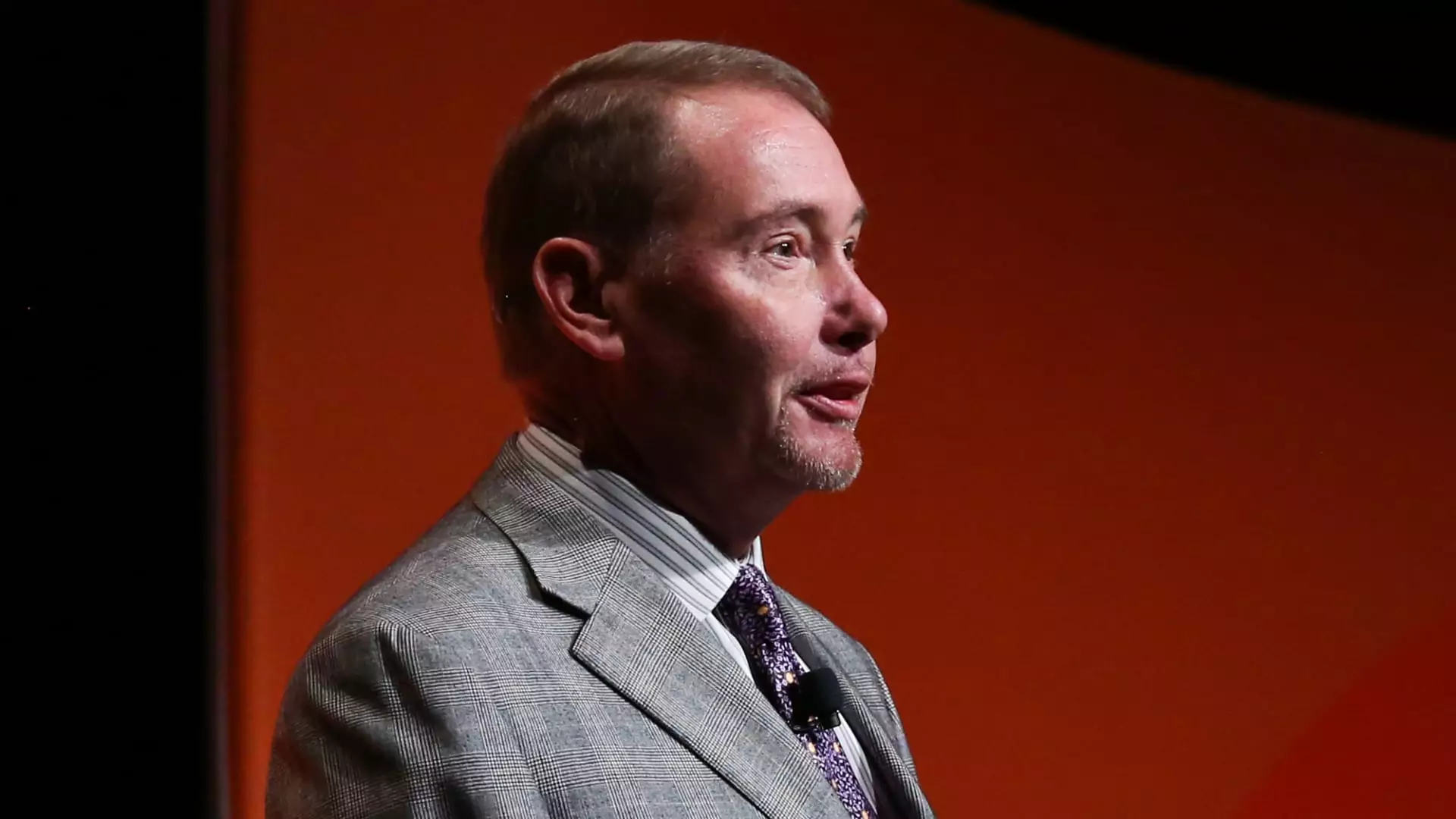In a landscape marked by economic unpredictability, Jeffrey Gundlach, the CEO of DoubleLine Capital, offers a stark warning that should reverberate through boardrooms and living rooms alike. With his firm managing nearly $95 billion, Gundlach, renowned as a sage of fixed-income investing, has positioned himself as an influential voice warning of a looming recession. He believes the probability of an economic downturn reaching between 50% and 60% is not merely alarmist rhetoric; it is a grounded assessment in the face of troubling economic signals.
Gundlach’s perspective comes with a caveat: investors must act decisively. According to him, the recent spikes in market volatility are not random fluctuations; rather, they are precursors to deeper economic issues. With tariffs imposed by former President Trump creating waves of uncertainty among major trading partners, Gundlach argues that a strategic reevaluation is not just advisable; it’s essential. Ignoring his insights could leave investors vulnerable and potentially lead to devastating losses as markets respond to these macroeconomic tensions.
The Warning Signs of Stagflation
The Federal Reserve’s recent decisions only add fuel to Gundlach’s concerns. Upgrading their inflation outlook while downgrading growth forecasts paints a grim picture of stagflation—a scenario where stagnant economic growth coexists with rising prices. Such dynamics typically create a treacherous environment for both consumers and investors, leading to diminished purchasing power and lowered corporate profitability.
Gundlach points out that the Fed’s indications of potential interest rate cuts by the latter part of 2025 may fail to provide the relief many hope for. The implications are clear: a volatile economy may lead to further market corrections, which Gundlach asserts, is a likely outcome if investors fail to strategize effectively. In this lens, the investment landscape is not just volatile; it could become profoundly treacherous.
Shifting Focus: Opportunities Beyond U.S. Borders
As the storm brews, Gundlach’s guidance advocates for a departure from American securities. He posits that U.S. investors should seize opportunities in Europe and emerging markets, implying that diversification may not just be wise but necessary. The conventional wisdom that has favored domestic investments is being upended, and it’s time to explore less traditional avenues.
There’s a certain liberating resonance in his advice—moving away from the familiar, yet narrowly defined investing confines of the United States encourages adaptability. This strategic pivot could be the difference between financial distress and prosperity in an uncertain economic climate. Gundlach’s insights are especially pertinent for those who have relied solely on the American market, which, as recent history suggests, may not be as robust as previously believed.
In a world where economic variables are in constant flux, heeding Gundlach’s warnings and recommendations may allow investors to shore up their defenses against looming market turbulence. Ignoring such sagacity could lead to regrettable consequences for those who choose to stay the course in potentially treacherous waters.

